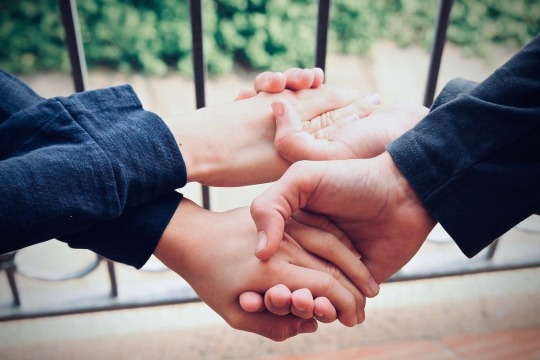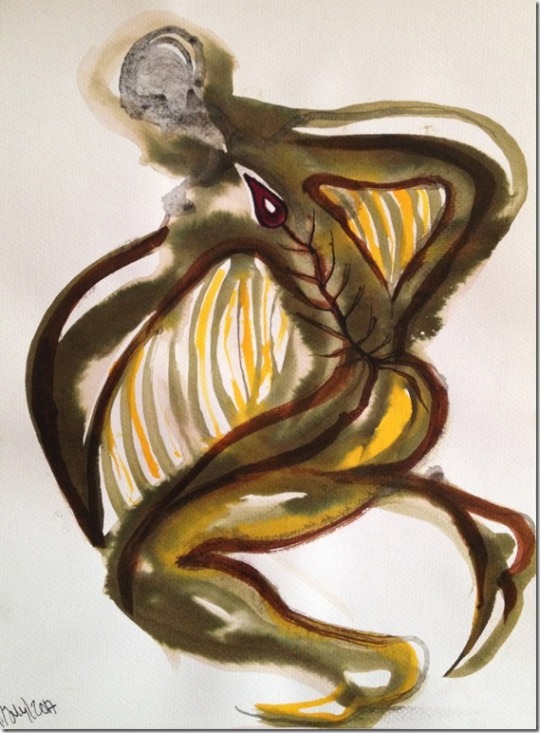#friendship&039;s part
Text
Sacred Bonds
In sacred tome, where ancient wisdom lies,A tale unfolds of man’s enduring quest,To find a friend, a love to harmonize,And banish loneliness from his own breast.
For Adam, first among our mortal kind,Was formed alone in Eden’s garden fair,Yet in his solitude, God’s grace did find,A worthy helpmate with whom he could share.
Thus, let the lonely man take heart and seek,Within the scriptures,…

View On WordPress
#Adam#ancient wisdom#banish loneliness#befriend#Bible&039;s sacred pages#Bless#blessings#blossom#companionship#company of friends#Eden&039;s garden#embellish#enduring quest#Faithfulness#Fellowship#find a friend#friendship cherished#friendship&039;s bloom#friendship&039;s part#friendship&039;s warmth#gentle spirit#God&039;s grace#Guidance#guide#harmonize#humble heart#Jonathan and David#Joy#joy shared#lessons
0 notes
Text
The little girl in the corner. Part 1
The little girl in the corner. Part 1
The little girl in the corner sits and stares at what’s going on around her. No one even knows she’s there. But as she sits there, she see’s all. The good the bad , the evil, the riotous. But what is it she’s looking for?
All the people just scurry around the street trying to get their shopping done and make it back towards home. But this little girl has no desire to go. What is it she’s looking…
View On WordPress
#country life#drink of water#faith#find out#friendship#Kindness#little girl#little girl in the corner#love#Part one#Relationships#Short story#what&039;s next
1 note
·
View note
Photo

How To Create An Economy That Works. Even if People Don't.
COVID-19 this year shook the world out of complacency. We see with clarity that our economy doesn't work if people don't.
That makes human beings slaves to the economy. So much so, some willingly will die for it.
That's crazy. It also literally means humans are cogs in the economic wheel. We here at Copiosis hear this sentiment often. People say "how can you create a society where people won't work when so many things we need, need people working to provide them?"
That, dear reader, is a kinder way of saying, "people must work for me whether they like it or not."
That is slavery.
But we can have a vibrant economy, even if people don't work. Just because you might not know how that can happen doesn't mean it's impossible. What we're creating with Copiosis is opportunity for all. Not just opportunity, truly unprecedented, first-of-its kind opportunity: Freedom and Wealth For Everyone in an economy that works even if people don't.
When we use the word "freedom" we mean something specific:

^^We mean something specific when we use the word "freedom".
Opportunity, wealth, freedom
When we combine opportunity, wealth and freedom together, we mean something specific too. What do we mean by this?
We're creating societies that thrive on moneyless economies. Talk about an economy - let alone a society - that thrives without money. You'll be met with blank faces or rolled eyes. Humanity and money have been together for so long, we can't conceive what society would look like without it, even though there was a time when human societies used no money.
Common belief suggests no civilization can survive without a thriving economy and economies can not function without a viable exchange medium.
Our almost religious belief in money as the sin qua non of functional economies, brings with it a panoply of problems.
"Those problems will intensify until we kick existing structural systems to the curb, replacing them with something better, including a better way to reward those who produce value."
That quote was the original paragraph of this post that went here. As you can see, way back in 2014, years after we published the original, societal problems HAVE intensified. With that intensity come calls for running society differently.
Eliminating money from civilization is a grave issue. Money is not the root of all evil, but for many reasons, money causes nearly all problems we see today. Eliminate money and virtually all these problems disappear. No endeavor holds more promise.
More of us are discovering the theory of how moneyless economies might benefit humanity. What it would look like and how it would function are different matters.
Let alone how we might pay for such a transition. Copiosis answers both the what and the how, including the part about paying for it. Without these answers, such societies will remain merely theoretical.
How does this equal opportunity, freedom and wealth, for everyone?
Look at the one percent. Opinions to the contrary, the majority of these people, especially the newer ones, have far more in common with the 99 percent than not. A common thread running through these multimillionaires' experience is...well, here's what they say:
...you will never have to worry about things like retirement, being able to send your kids to college, paying for catastrophic medical problems, working if you don't want to.
...well, I can basically do anything I want. So what do I want?
I knew it meant I'd never, ever have to work again unless something went terribly wrong.
The only thing I really desire nowadays, is for "self actualization". How do I leave a legacy in a short life?
What is real wealth?
Being wealthy is less about money and more about what money allows. Wealth = freedom. Remember Abraham Maslow?
He wrote a paper a long time ago called “A Theory of Human Motivation.” The paper later became a book “Motivation and Personality”. You may not remember the writings. I’m sure you remember his famous Hierarchy of Needs.
To review briefly, Maslow asserted five motivations behind human action.
Psychological - Satisfying survival needs (breathing, food, water, sex, homeostasis, etc)
Safety - Gaining security: physical, resources, health, property
Love/Belonging - Satisfying needs in sexual intimacy, friendship, family
Esteem - Gaining respect of others, respect by others, achievement leading to confidence
Self-Actualization - creativity, spontaneity, problem solving, acceptance of facts, etc.
The five motivations above are written in backwards order. They really look like the pyramid below, with step five representing the pinnacle. The others come underneath it.

^^By User:Factoryjoe - Mazlow's Hierarchy of Needs.svg, CC BY-SA 3.0, https://commons.wikimedia.org/w/index.php?curid=7964065
People generally strive to climb the pyramid, the goal being Self-actualization. Some people, most people, get to level three or four. Few reach level five.
The main thing about being wealthy is your priorities. With wealth, priorities shift up the pyramid. Radically different life experiences result. No, not flying in private jets and screwing the 99 percent. But taking time to completely understand oneself, then achieving those things that add to one's self-worth, -esteem, and the higher states of being human.
This is what Copiosis offers everyone. How?
By replacing money
Copiosis replaces money with Net Benefit Reward. Net Benefit Reward is not money. Some of its functions are similar to money in appearance. Yet, Net Benefit Reward is limited in ways money is not.
Net Benefit Reward, like all rewards, represents an expression of a society’s gratitude to an individual whose acts benefit society and the planet. This is a critical difference between Net Benefit Reward and money. Any reward is a gift. It is not something the recipient expects in return for something. Nor do they earn it.
Typically, rewards are awarded after the fact. Sometimes, the person or organization offering the reward is a third party to the act itself. Recipients of said rewards are usually not expecting such recognition. They are instead performing acts of their own volition for purposes other than receiving the gift of recognition.
For example, a Marine receives the Medal of Honor, the greatest wartime distinction in the US Armed Services. Did the Marine commit his act of bravery in order to receive the award? Of course not.
He didn't say to himself: "If I do this, I may win the Medal of Honor! Semper Fi!!!!" then charge the hill. When he returns to the rear after single-handedly saving his platoon, he doesn't walk into the Platoon leader's tent and say: "Where the hell is my Medal of Honor? I earned it!"

^^Coast Guard/Navy/Marine Corps Medal of Honor[/caption]
Instead, such men are thinking (in the moment): "We're pinned down. If someone doesn't do something, we're all gonna die." Or, more likely, he just takes action because that's what he does.
In the rear, he'll explain it this way:
"Hell man, I was just doing my job, protecting my fellow Marines."
If you read such accounts, this invariably is the "hero's" response. It is the Staff Sergeant, the Platoon commander and their chain of command - the Marine's "society" - that responds to this Marine's "just doing my job" - his act - by rewarding him with the Nation's highest honor...after the fact. After all the details are in, often after several months go by, maybe, even years.
This is how Net Benefit Reward in Copiosis works too. Producers act. They act because they are passionate about what they are doing. They are doing that thing as an expression of their passion. They do that thing because they can't think of anything else they'd rather be doing. If they could be doing something else, they'd be doing that.
They could be doing it because their passion is to make society better in a way they know how, in the way that fulfills them. They could be doing it because they just love doing that thing and they'd do that thing if society was around or not.
A Copiosis society responds to Producers' "passion expression" by rewarding them. Producers can then use that reward to access certain other rewards. Things that are only accessible....not through reward....but through acts.
There is no exchange going on. There are only acts. Society rewards desirable acts by making accessible certain tangible rewards. Incidentally, Medal of Honor recipients, once rewarded can use that reward to access other rewards not accessible to others. Net Benefit Reward functions similarly. In a Copiosis economy, "certain rewards" are luxury goods and services.
Necessities (food, clothing, shelter, education, healthcare) are provided to all at no cost. Producers who make necessity goods are acting. Action which produces Necessities are rewarded by the Copiosis society with Net Benefit Reward. That is how Consumers receive Necessities at no cost.
Is Copiosis akin to that fabled "gift economy" people theoretically talk about? Or is it an exchange economy?
It doesn't really matter. This is how Copiosis works.
Shortly after the transition, producers may feel they are owed this reward like an exchange. Such feelings don't describe how Copiosis works. Copiosis doesn't "make" people feel this way.
That feeling is an artifact of a system where people needed money to buy things they needed to survive. The way they got that money was to earn it (through work). Debt fostered expectation—if money didn't come, one risked loss. The longer the delay between work performed and money paid, the stronger the expectation. Foiled expectations lead to anger, workers' rights and labor unions. After all, work in the old days was often dangerous, life-threatening and extremely physically demanding. Creditors were unforgiving as well. Fail to pay your debts and you could lose all your possessions, even your children and your wife.
This doesn't happen in Copiosis. Everything you need is provided at no cost to you. Society covers the "cost" as an expression of gratitude (Net Benefit Reward) towards producers. With all Necessities provided, everyone instantly experiences wealth unparalleled. The first two levels of Maslow's hierarchy - where most people invest their time achieving - are instantly covered.
But it doesn't stop there. People now are free to do whatever they want in pursuit of climbing the pyramid.
Freed from earning a living, it's natural that people will perform acts best-suited to their talents. Now they have time to discover who they are, what lights their fire. Contributing to others and to society then becomes natural.
Copiosis creates a functioning economy with no medium of exchange. That same economy overflows with acts at all levels and in all sectors. Acts creating tremendous prosperity. No money required.
COVID-19 showed us how crazy we've become about money, economics and systems we use to run those economics. Let's enjoy a vibrant economy, but let's not give our lives to it. Economies should support us living. We don't know about you but living isn't worth living without freedom, wealth and opportunity.
Copiosis offers all three. To find out more about Copiosis, visit Copiosis.com.
#copiosis#wage slavery#wage slave#moneyless economy#society without money#anti capitalism#capitalism#capitalism is violence#capitalism is evil#capitalism is hell#capitalism is killing me#capitalism is a disease#capitalism is cancer#capitalism is a scam#capitalism is a nightmare
0 notes
Text
Kala-Wiji Chronicles: Part 3 (The Beauty of Mt. Wiji)
Kala-Wiji Chronicles: Part 3 (The Beauty of Mt. Wiji)
From a number of plot twists to finally reaching Mt. Kalatungan, our three-day climb culminated with a traverse hike to Mt. Wiji.
Mt. Wiji stands at the height of 2819.78 meters above sea level and is located at the southern part of Kalatungan Mountain Range. The mountain is named after the first Japanese who made it into the peak, but locals refer to it as Mt. Lumpanag or Makaupao.
The early…
View On WordPress
#blogging#Bukidnon#friendship#It&039;s More Fun in the Philippines#Kala-Wiji Chronicles#Kala-Wiji Chronicles: Part 3 (The Beauty of Mt. Wiji)#Mt. Kalatungan#Mt. Lumpanag#Mt. Wiji#musings#Nature#Nature Photography#Philippines#reflections#sunrise#Travel#writings
0 notes
Photo

581. Living Reconciliation Or recognizing the silliness of our fortressed egos that create conflict toward each other and walking a process to create peace in it.
#admiting mistakes#admitting one&039;s mistakes#apologizing#arrogance#changing relationships#deconstructing egotism#desteni#desteni process#ego of the mind#mindful pride#old friendships#owning creation#parting ways#reckoning#reconciliate#reconciliation#self responsibility#silliness
0 notes
Text
Politics: Macron and Trump's bromance is big, but experts warn it might not be enough to get things done
French President Emmanuel Macron seems to have cracked President Donald Trump's code, but their close personal relationship might not translate to real policy.
US President Donald Trump and French President Emmanuel Macron's friendship has blossomed in the past year.
Recent victory with Syrian airstrikes set an optimistic stage for a constructive official state visit that starts Monday.
But experts caution that the two leaders' stark contrast between political objectives could be too large of an obstacle for future policy partnerships.
French president Emmanuel Macron arrived Monday as the first world leader President Donald Trump invited for a state visit.
Friendship bloomed between the two leaders in the year since Macron's election victory, including dinner at the Eiffel Tower, an epic handshake battle, and publicly gushing about each other.
Macron ran as part of a centrist party of his own creation with globalist goals, and has grown increasingly close with Trump despite their fundamental policy differences.
A cheery public image and the successful joint airstrike by the US, Britain, and France on Syria's government forces last week in response to the chemical attack set an optimistic stage for the state visit and future partnerships in policy. But the reality of future potential could be overblown, Brookings Institution foreign policy fellow Célia Belin warned.
"There are areas where the French/American cooperation can be strong and immediate, especially when they share a common, precise goal like in the small, punitive strikes on Syria," Belin said. "But overall they won't have the same approach on a number of things."
Macron founded the République en Marche, or the Republic on the Move, to provide France with a reformist alternative to far-right parties that share Trump's suspicion toward globalism and favoring of closed borders.
"Macron was just talking last week about how there's a civil war in Europe between a liberal democracy and authoritarianism," Ian Bremmer, president of geopolitical-risk firm Eurasia Group, told Business Insider. "If he was being honest about the US, he'd say the same thing and Trump would be on the other side."
The roots of their bromance
Trump and Macron's strong relationship is due in no small part to their common backgrounds, said former US diplomat and Global Situation Room President Brett Bruen.
Macron rose to prominence in French banking, an uncommon path to the presidency comparable to Trump's roots in real estate.
"He understands intrinsically this kind of language that Trump needs to hear," Bruen said. "Trump needs to hear profit and loss, he needs to hear return on investment."
After another tough week of legal troubles facing his personal lawyer, Trump insulated the state dinner from his recent troubles, breaking precedent by excluding Democrats and the media from the guest list.
Their personal relationship is at the center of Macron's state visit, as White House Press Secretary Sarah Huckabee Sanders said ahead of the French president's arrival Monday, the administration expected an "open and candid discussion because of the relationship they built."
Other world leaders could learn from Macron
Though their personal chemistry is often in the spotlight, it's Trump's high-profile legal troubles that could hinder the kind of progress Macron is hoping for, Bremmer said. Macron notably wants Trump to keep the US in the Iran nuclear deal, which Trump has called "the worst deal ever."
"Trump is under an enormous amount of pressure domestically," he said. "No matter who Trump meets with, his focus is mostly on the investigation. You see that with his tweets, you see that with his statements."
As for their partnership so far, Macron has already succeeded in getting close to the president in a way no other world leader has, Bruen said, and that could serve as an example to other world leaders in how to deal with Trump because of his unique approach to policy.
"It's a model for other world leaders to look at if they want to get things done, not just get along," Bruen said. "They have to find a way to establish that common ground with an unconventional leader — and Trump won't be the only unconventional leader."
source https://www.newssplashy.com/2018/04/politics-macron-and-trumps-bromance-is_24.html
0 notes